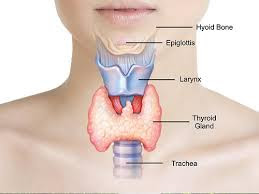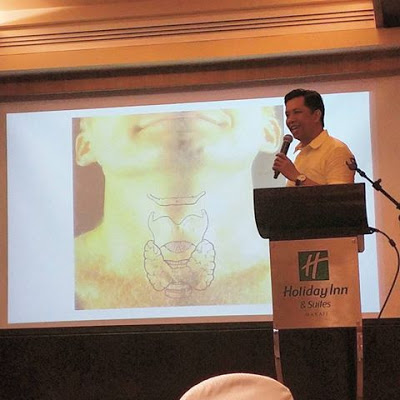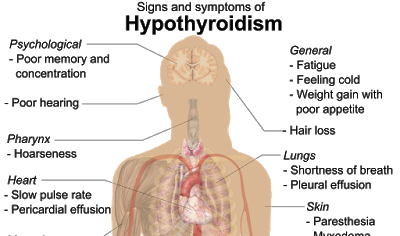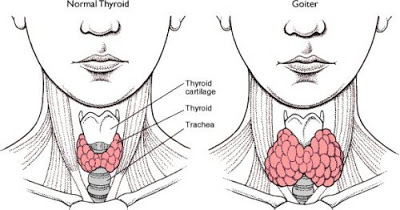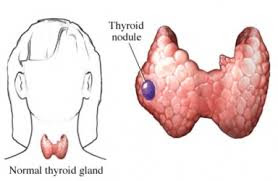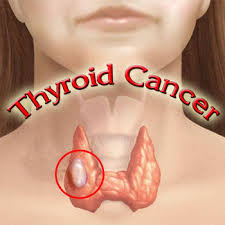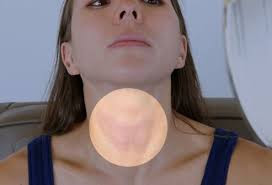What is Thyroid?
Thyroid is a large ductless gland in the neck that secretes hormones regulating growth and development through the rate of metabolism. The thyroid creates, stores, and releases thyroid hormones into the blood. Thyroid hormones are important to the normal function of our body, and affect everything from the brain to our other organs.
Did you know that according to a study by the Philippine Society of Endocrinology, Diabetes and Metabolism in 2012, one in 11 Filipino adults has goiter, and around one in 12 Filipino adults suffers from some form of thyroid disorders?
Millions of Filipinos are affected by problems with their thyroid, yet awareness of this disease is very low. The symptoms of thyroid disorders are often mistaken for other diseases, or worse, are ignored by patients with the disease.
To raise awareness of thyroid disorder, Merck Inc. held a bloggers event last September 21 at the Holiday Inn Makati. It was a great privileged to attend a very informative event like this.
Dr. Nemencio Nicodemus, Jr., who is the President of the Philippine Society of Endocrinology, Diabetes, and Metabolism, as well as a Professor in the UP College of Medicine and the Ateneo School of Medicine and Public Health, gave an informative talk on what the thyroid is, as well as the symptoms of thyroid disease.
photo credit: rejjisheart
What is hypothyroidism?
Hypothyroidism means that the thyroid is unable to produce enough thyroid hormone to meet the body’s need. Because of this, metabolism slows down and the body starts to slow down its processes. Common causes of hypothyroidism include insufficient amounts of iodine in the food, surgical removal of the thyroid, autoimmune diseases, or radiation therapy of the thyroid.
Patients with hypothyroidism, or too little thyroid hormone have these symptoms:
- tend to have slower metabolism:
- they gain weight despite not eating much
- move and speak slowly
- feel tired and have depressed thoughts
- cannot tolerate cold,
- and have irregular menstrual periods.
In diagnosing hypothyroidism, your doctor will take into account both your symptoms and the results of a thyroid stimulating hormone (TSH) test. In essence, hypothyroidism is the result of diminished levels of thyroid hormones—known as T3 and T4.
When we are still trying to conceive, my OB-Gyn requested me to check my TSH, T3 and T4 because underactive thyroid gland can cause infertility. Thank God, the results are normal. ^_^
With hypothyroidism, your thyroid gland doesn’t produce enough of certain important hormones. Low levels of thyroid hormone can interfere with the release of an egg from your ovary (ovulation), which impairs fertility. In addition, some of the underlying causes of hypothyroidism — such as certain autoimmune or pituitary disorders — may impair fertility.
If you have hypothyroidism and hope to become pregnant, work with your doctor to make sure your hypothyroidism is under control. Seek additional help from an infertility specialist if needed.
If you have hypothyroidism and become pregnant, tell your doctor promptly. Close monitoring of your thyroid hormone level during pregnancy can promote normal fetal development and reduce the risk of miscarriage.
What is the treatment for hypothyroidism?
Hypothyroidism is treated by normalizing the levels of thyroid hormone in the blood. This is done by taking levothyroxine, or thyroid hormone replacement. You will be given an individualized dose by your physician until the balance of thyroid hormone in your body is restored. You will need regular TSH monitoring to ensure that you are taking the correct dose of levothyroxine.
Dr. Nicodemus also explains Hyperthyroidism, it is when the thyroid gland produces too much thyroid hormone. Another term for this overactive thyroid gland is thyrotoxicosis. With too much thyroid hormone, your body’s metabolism goes into overdrive and body processes speed up beyond normal.
Listed below are the common symptoms of patients with hyperthyroidism, or too much thyroid hormone:
- will have hyperactive metabolism
- they lose weight despite having good appetite
- have heart palpitations
- irritable thoughts and insomnia
- have sweating and heat intolerance
- and can have tremors in their hands.
What is the treatment for hyperthyroidism?
There is no single treatment for hyperthyroidism. The appropriate choice will be determined based on the cause of the hyperthyroidism, your age, the severity of your condition, and other factors as deemed relevant by your physician.
What is goiter/thyroid nodule/thyroid cancer?
Goiter refers to the abnormal enlargement of the thyroid gland. It can occur in hyperthyroidism (too much thyroid hormone), or in hypothyroidism (too little thyroid hormone), or in euthyroidism (correct amount of thyroid hormone).
Goiters are most commonly caused by iodine deficiency. When there is not enough iodine in the diet, the thyroid tries to compensate by enlarging. Other diseases, such as Graves’ disease and Hashimoto’s thyroiditis can also cause goiter.
Thyroid nodules occur when there are abnormal growths of thyroid tissue. There may be a single nodule, or multiple nodules. These can produce thyroid hormone (toxic nodules). Sometimes, these growths may be malignant (thyroid cancer).
Thyroid cancer is rare compared to other cancers, but is considered very treatable and usually has high survival rates.
How do we check for goiter/thyroid nodule/thyroid cancer?
You can check for goiter and thyroid nodules by doing the Neck Check. This can be done any time with just a mirror and a glass of water.
The steps are as follows:
- Hold the mirror so that you can see the entire neck.
- Lean your head back while focusing on the lower neck.
- Take a sip of water and swallow.
- While swallowing, observe whether enlargement occurs in the area of the neck where the thyroid is situated.
Repeat the Neck Check several times, as necessary. If you think there may be an abnormality, consult a physician.
There are a lot of people who may have thyroid disorders, but aren’t even aware until it is too late. It is important to have one’s thyroid checked as early as possible, especially if there is family history of the disease, or during pregnancy. Prevention, proper information and early detection will always be better than cure that comes too late.
More information can be found online in the website www.thyroid.ph. This is an online repository of information where people can learn more about thyroid disorders. The website also contains useful guided which can help people check themselves for symptoms of thyroid disorders, such as goiter, hyperthyroidism, or hypothyroidism.
———————————————————————————————————————————————–
Merck is the world’s oldest pharmaceutical and chemical company with headquarters in Darmstadt, Germany. Merck is a leading science and technology company that works to further develop technologies that improve and enhance life – from biopharmaceutical therapies to treat cancer or multiple sclerosis, cutting-edge systems for scientific research and production, to liquid crystals for smartphones and LCD televisions.

